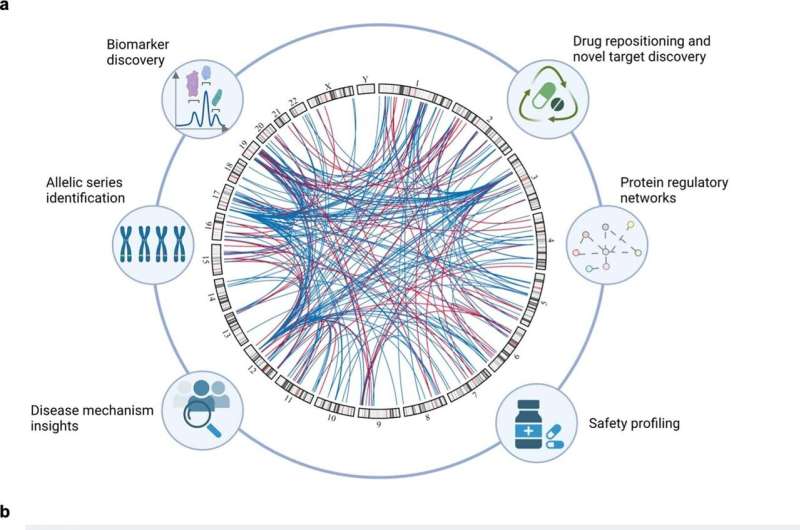Blood
Connections between rare genetic changes and blood proteins to shape current and future drug discovery
Research published in Nature provides new insight into human disease by studying how rare changes in genes affect proteins found in human blood, called plasma proteins. Findings revealed thousands of never-before-identified associations between these rare genetic variants and plasma proteins, the basis of which will inform future drug discovery research and treatment approaches.
This study used data from more than 50,000 individuals in the UK Biobank, making it the largest study of its kind to date.
Proteins are the functional units of cells and play crucial roles throughout the body. Their abundance and function are tightly controlled by genes contained on chromosomes. Therefore, medicines that target genes or proteins that are linked to human disease are much more likely to deliver clinically meaningful outcomes and the more we understand about how genetic variation may affect proteins, the more targeted our drug discovery and development efforts can be.
In this breakthrough study, AstraZeneca researchers studied the effects of rare genetic variants on over 3,000 proteins in the body. Compared with common genetic variants, rare variants offer stronger evidence and unique insights into the direct relationships between genes, proteins, and their roles in disease.
The research team identified more than 4,400 significant “protein quantitative trait loci”—gene variants associated with protein function essential to health. Over three-quarters of these relationships had never been detected and provide additional insight to a companion flagship study analyzing common variants in a similar UK Biobank cohort.
By identifying these novel associations, findings from this study enhance our ability to decipher disease mechanisms and pinpoint new targets for drug discovery, thereby increasing the likelihood of success in early drug development.
Slavé Petrovski, vice president, Center for Genomics Research, Discovery Sciences, R&D, AstraZeneca said, “To successfully treat a disease, we benefit from understanding the underlying molecular cause. This research breaks new ground showcasing connections between genetic variants and proteins that we have never seen before. We are proud to be sharing our data on these novel connections with the broader global scientific community to encourage scientific progress and enhance our ability to support future research that directly benefits human health in a sustainable manner.”
AstraZeneca is now applying these insights to further scientific understanding of disease mechanisms, possible off-target drug effects, novel target identification among biomarker discovery, among other applications to accelerate drug discovery and development within their R&D pipeline.
More information:
Ryan S. Dhindsa et al, Rare variant associations with plasma protein levels in the UK Biobank, Nature (2023). DOI: 10.1038/s41586-023-06547-x
Benjamin B. Sun et al, Plasma proteomic associations with genetics and health in the UK Biobank, Nature (2023). DOI: 10.1038/s41586-023-06592-6
Provided by
AstraZeneca
Citation:
Connections between rare genetic changes and blood proteins to shape current and future drug discovery (2023, October 9)
retrieved 9 October 2023
from https://medicalxpress.com/news/2023-10-rare-genetic-blood-proteins-current.html
This document is subject to copyright. Apart from any fair dealing for the purpose of private study or research, no
part may be reproduced without the written permission. The content is provided for information purposes only.

